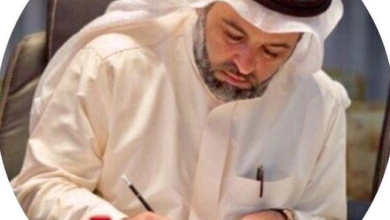The Saudi authorities continue to violate the criminal procedure law

The Saudi authorities insist on continuing their arbitrary and repressive approach, despite the subsequent violations of local and international laws, as they continue to violate the Saudi Criminal Procedures Law.
Among the provisions of the Penal Code that the authority has violated is Article 37, which states that “no person may be arrested or imprisoned except in prisons or places of detention designated for that by law.”
The same article also stipulates that “it is not permissible for the administration of any prison or detention to accept any person except under a reasoned order and for a specified period and signed by the competent authority, and it must not keep him beyond the period specified in this order.”
Despite the clarity of the law, the authorities did not abide by these provisions. They arrested many prisoners of conscience, delayed their trials, detained many in secret places that no one knew about, arrested many without judicial orders, and practised the most severe forms of injustice and torture against them.
Sanad Human Rights Organization called on the Saudi authorities to cease those violations that occur due to the injustice of persons and citizens of prisoners of conscience.
Human rights bodies highlighted the Saudi authorities’ use of secret trials as a tool to eradicate prisoners of conscience inside prisons.
Sanad Organization for Human Rights said that the Saudi authorities are determined to eliminate and abuse prisoners of conscience by circumventing the law and manipulating judicial rulings to issue arbitrary rulings through which the authority settles its accounts with opponents, expressions of opinion and intellectuals.
The organization stated that secret courts against prisoners of conscience, academics, writers and thinkers are a humanitarian crime that should not be tolerated. They are not allowed to hire a lawyer or attend an international committee that monitors the trial or the detainees’ families. The court focuses on often fabricated charges or charges extracted under torture.
Among those secretly convicted by the regime authority, for example, but not limited to Dr Salman Al-Awda, Amal Al-Harbi, Loujain Al-Hathloul, Awad Al-Qarni and many other preachers, activists and prisoners of conscience demanding their rights.
Thus, secret courts are among the crimes that the Saudi authorities have been implicated in against prisoners of conscience, which should not be tolerated or tolerated, as they are an injustice against the detainees, an infringement of human rights, and a violation of international and local terms and agreements.
Many activists and detainees died inside the Saudi authorities’ prisons due to the willful neglect of the state of health and the physical torture they underwent behind bars.
Among those who died in the detention cells are “Abdullah Al-Hamid, Musa Al-Qarni, and Hamad Al-Salihi,” as well as many activists and free voices.
The danger of death continues to haunt prisoners of conscience inside the prisons of the regime. Among those who are persecuted for death due to deliberate neglect and physical torture are Muhammad al-Khudari, Safar al-Hawali, Saud Mukhtar al-Hashemi, Aida al-Ghamdi and many others.
The human rights organizations are calling on the human rights authorities in the world to consider the dangers of death that persecute prisoners of conscience and to rescue them from the jailers inside the prisons of the Saudi authorities.
Meanwhile, the Saudi authorities continue to enforce the enforced disappearance of Hajj Khaled Muhammad Abdul Aziz for more than four years inside their detention centres.
Khaled Muhammad was subjected to arbitrary arrest on his way with his mother from Medina to Makkah Al-Mukarramah, performing Hajj with his mother in September 2017.
Within the prisons of the authority, Khaled Abdel Aziz faced health neglect, deprivation of communication with his family, ill-treatment and psychological torture by the jailers of the country’s authority.





